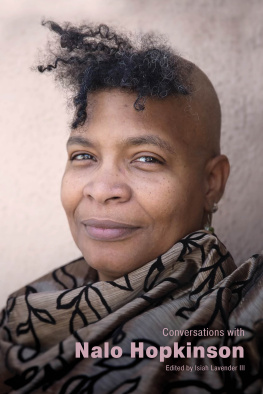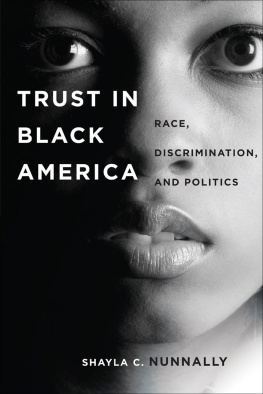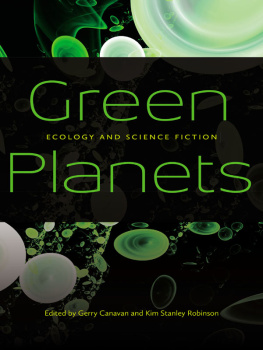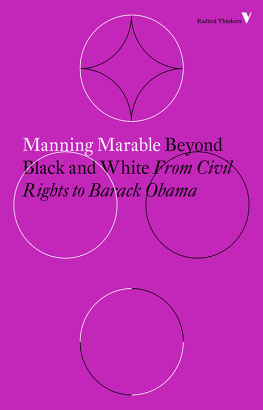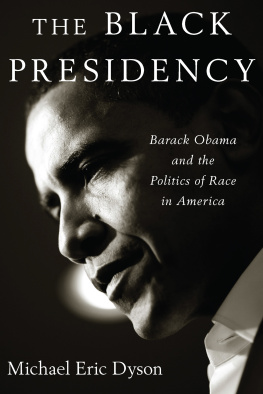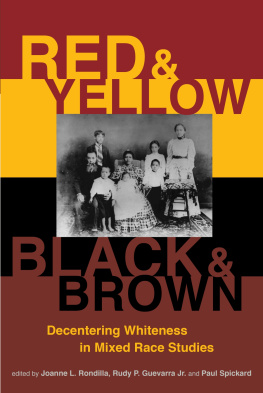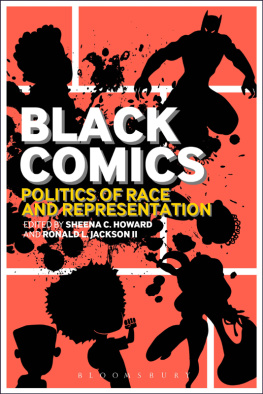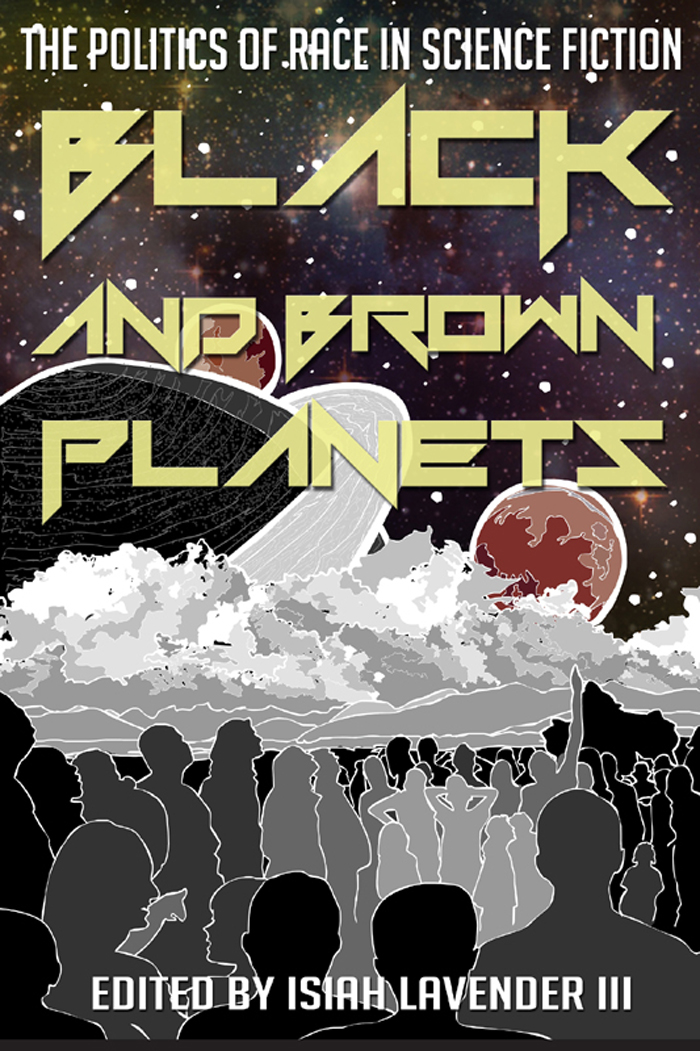Black and Brown Planets
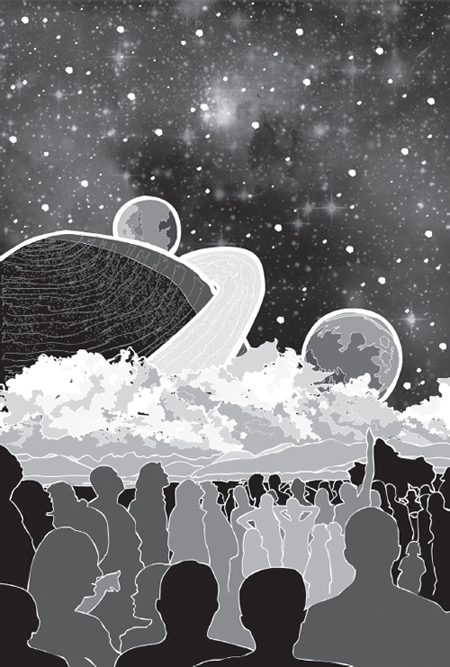
BLACK AND
BROWN PLANETS

The Politics of Race in Science Fiction
Edited by Isiah Lavender III
University Press of Mississippi / Jackson
www.upress.state.ms.us
The University Press of Mississippi is a member of the Association of American University Presses.
Frontis image by Jaz C. Alexander
Copyright 2014 by University Press of Mississippi
All rights reserved
Manufactured in the United States of America
Edward James, Yellow, Black, Metal, and Tentacled: The Race Question in American Science Fiction was originally published in Science Fiction, Social Conflict, and War, edited by Philip John Davies. Used by permission of Manchester University Press.
First printing 2014
Library of Congress Cataloging-in-Publication Data
Black and brown planets : the politics of race in science fiction / edited by Isiah Lavender III.
pages cm
Includes bibliographical references and index.
ISBN 978-1-62846-123-7 (hardback) ISBN 978-1-62846-124-4 (ebook) 1. Science fiction,
AmericanHistory and criticism. 2. Race in literature. 3. Minorities in literature. I. Lavender,
Isiah, editor.
PS374.S35B55 2014
813.08762093529dc23 2014010170
British Library Cataloging-in-Publication Data available
Contents
Isiah Lavender III
Lisa Yaszek
De Witt Douglas Kilgore
Gerry Canavan
Isiah Lavender III
Marleen S. Barr
Grace L. Dillon
Patrick B. Sharp
M. Elizabeth Ginway
Lysa M. Rivera
Matthew Goodwin
Malisa Kurtz
Edward James
Edward James
Robin Anne Reid
Acknowledgments
First and foremost, I must thank God for providing me with the ambition and requisite skills to see this collection to fruition. Second, I thank my wife, Heather, for all of her love, support, prayer, and sacrifice; my sons, Kingsley and Frazier; and my sister, Melissa, for their patience with me. Though I have certainly learned that editing a collection is not at all easy, I am grateful to all of the contributors for the trust they placed in me, for their willingness to revise, and for taking this journey with me. I especially appreciate the advice and additional help offered by Gerry Canavan and Lisa Yaszek.
The idea for this collection originated at the 2010 International Conference of the Fantastic in the Arts, where I moderated a panel, Black and/or Brown Planets: Politics and Race in Science Fiction, that featured Grace Dillon, David Higgins, De Witt Kilgore, and Patrick Sharp. I am very grateful to these panelists as well as to the audience members who came to listen to their erudition. Likewise, I am indebted to Rachel Haywood Ferreira for spreading the word about the call for papers. I deeply regret not being able to include several more essays by Henri-Simon Blanc-Hoang, Biling Chen, Wei Ming Dariotis, Sharon DeGraw, Uppinder Mehan, and Takayuki Tatsumi. I can only hope they accept my heartfelt apology and perhaps a meal when our paths next cross.
I am also grateful to Brian Attebery for helping me refine my own Butler essay as well as to Dale Knickerbocker and Jen Parrack for pointing out the obvious regarding Butlers character, Beatrice Alcantara. I would be remiss not to express my thanks to my old UCA colleaguesChuck Bane, Dwayne Coleman, Sonya Fritz, Lori Leavell, David OHara, and Wayne Stengelfor listening to me drone on and on about the challenges of editing. I must also thank UCA for providing the time necessary to complete the first draft of this project with a Fall 2012 sabbatical.
Likewise, I have nothing but gratitude toward my new LSU colleagues Chris Barrett, Michael Bibler, Lauren Coats, Brannon Costello, Jennifer Davis, Daren Dean, Angeletta Gourdine, Benjy Kahan, Gerry Kennedy, Phillip Maciak, Michelle Mass, Elsie Mitchie, Rick Moreland, Anna Nardo, Daniel Novak, Lisi Oliver, and Irina Shportfor showing an immediate interest in my work.
I am also thankful to Manchester University Press for giving Edward James permission to reprint his foundational essay, Yellow, Black, Metal, and Tentacled: The Race Question in American Science Fiction, which first appeared in Philip John Davies, ed., Science Fiction, Social Conflict, and War (1990): 2649. His essay appears here in virtually identical form.
Finally, I am particularly grateful to the University Press of Mississippi. Walter Biggins believed in the project, Vijay Shah helped me see it through, Katie Keene kept me on schedule, and Ellen Goldlust was an amazing copyeditor.
INTRODUCTION
Coloring Science Fiction

ISIAH LAVENDER III
As long as I can remember, science fiction (SF) and race have been tangled together in my thoughts.

My earliest memory is waking up in my fathers arms, a light rain falling on my face, as he carried me into the house. At some point in the summer of 1977, I fell asleep during the trash compactor scene of Star Wars at the Grandview Drive-In located in Angola, New York. I had missed the epic light-saber duel between Obi-Wan Kenobi and Darth Vader, though I saw Han Solo shoot the green-skinned Greedo first! I remembered the strange greenness of Greedos skin and the thrill it gave me. I was three years old.

I remember my mothers adoration of SF in 1982. I remember her excitement about her birthday present, a subscription to OMNI magazine.Thats what Bryant called Replicants. In history books hes the kind of cop who used to call black men niggers. Of course, I did not comprehend the meaning of the comparison and soon forgot about it as the film overwhelmed my barely eight-year-old senses. I do vividly recall Rutger Hauers very blond head slamming through a wall, though.

The first time the N-bomb was dropped on me was 1983, but I survived to share this most intimate of memories with the world. I wish that I could have said that the year was 1984, one of the most iconic years in SF fandom thanks to George Orwells classic Nineteen Eighty-Four (1949), but then I would be lying. Nigger, youre dead! exploded in my ears as the fists and feet stomped me into the ice-encrusted snowdrifts of a February afternoon in the suburbs of Buffalo, New York. I was eight and three-quarters years old. My world was forever changed. My soul was reorganized on an atomic level. I was made aware of my difference, of my red-toned brown skin, not unlike W. E. B. Du Boiss experience in a schoolyard in Great Barrington, Massachusetts. I remember stumbling in the front door with a torn coat, missing one of my blue moon boots, cold, wet, bloody, and exposed to the toxicity of racism. My mother had an incredulous look of anger on her face, and I asked her, What does nigger mean, Mom?


